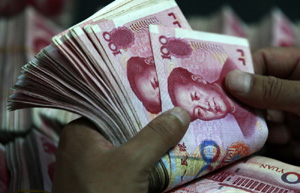International monetary system in urgent need of an overhaul
By Liu Mingkang (China Daily) Updated: 2014-09-30 07:182. Information sharing and disclosure should be improved.
The Special Data Dissemination Standards and General Data Dissemination Standards are good efforts by the International Monetary Fund to institutionalize data sharing, but more could be done.
The most striking issues over the past 44 years have been that: a) many central bankers and finance ministers have not had adequate mandates to share data and b) if such mandates exist, they are often unwilling to share, particularly during times of economic stress. The IMF must strengthen its sanctions and incentives to ensure that necessary, quality information is shared among member countries.
3. Capital movements should be better monitored and managed.
Yield-driven behavior by investors is exacerbating cross-border capital flows, which can destabilize both national and international financial markets. Countries should sequentially liberalize their capital accounts in line with efforts to strengthen their governance. The IMF should encourage countries to adopt suitable policies, such as Tobin tax-like approaches, to sterilize capital flows.
4. Cooperation and coordination should be at all levels.
International cooperation and coordination should be a strong focus. The IMF and Financial Stability Board should share data, analytical frameworks and staff, and all nations should do likewise.
I stress this point because this is a political process, and we are disappointed to see that quite often, national interests override the global interest. Changing that requires extraordinary political vision, wisdom and courage.
5. The role of a multi-currency system should be recognized.
We should seek an international reserve currency that is disconnected from any individual nation and can be neutral and stable in the long term. Until that point, a multi-currency system should be used more in international trade, investment and payments.
Shifts in economic power are unavoidable and currencies should reflect that, as was the case in the 1940s. At the very least, such a move will supplement the current dollar-dominated system.
Returning to Bretton Woods or passively retaining the current system would both be unwise. With effort from all countries, we may be able to create a more robust and flexible system. We must also remain on guard against panics and shocks.
The author is the former chairman of the China Banking Regulatory Commission.
 |
 |
| Europe helps boost yuan use internationally | Top 10 most-used currencies in the world |
- Beijing, Seoul agree to directly trade currencies
- Bank of Communications approved for yuan-sterling direct trade
- RMB to be global reserve currency by 2030: Economist
- Britain to include China's RMB as foreign currency reserve
- Putin looks to RMB to replace greenback
- Nation looks to boost international use of yuan for trade
- China reforms resource tax on coal
- China to start direct yuan-euro trade
- China reports H1 surplus in int'l balance of payments
- Tour by train with your cars during National Day holiday
- Top 8 expenses during the National Day holiday
- Changing the way the world travels
- Testing times lie ahead for steel firms
- Legal agencies to help enterprises expand overseas

















